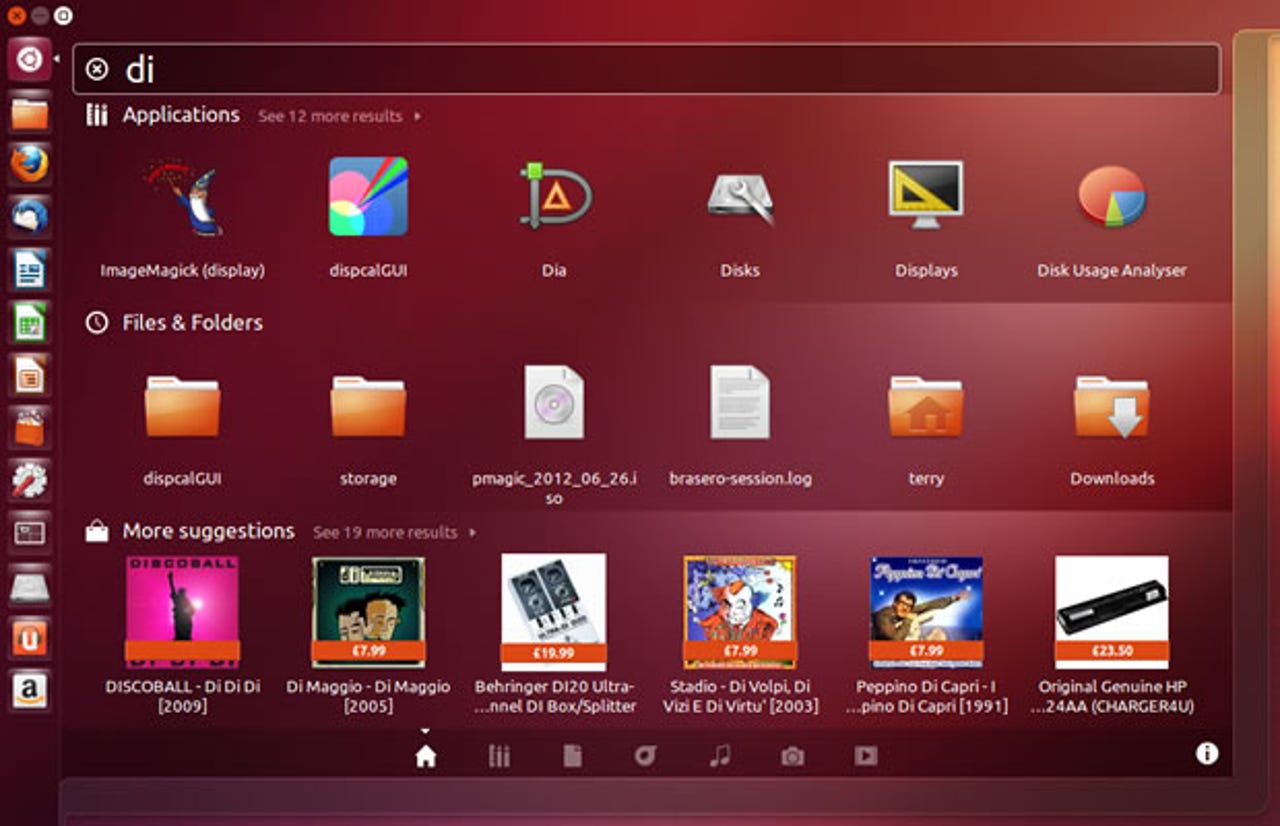Ubuntu bridges offline and online with Quantal Quetzal 12.10 release

Quantal Quetzal, the 12.10 update to Ubuntu, has been delivered, promising a better bridge between online and offline working, as well as tweaks to controversial commercial features in Dash.
The updated Linux distribution, released on Thursday, has revamped the Dash desktop search tool to now pull in online results in addition to locally stored content. Results could include files on Google Drive, Flickr photos and Facebook contacts, according to Ubuntu backer Canonical.

"In your enterprise environment, we're bringing the ability to search for documents, regardless of where they are," said Ivanka Majic, creative strategy lead at Canonical. "In our view, that's a very important feature for anybody using a computer in 2012."
In addition, the 'home lens' in Unity Dash will deliver results from online stores such as Amazon and Ubuntu One Music Store. "People who use Ubuntu shop in Amazon, so we've made that simple and easy for them," said Majic.
When it was announced, the feature attracted criticism from Ubuntu users who viewed it as shoe-horning advertising and Amazon into the desktop of the free, open-source OS. In response, the Ubuntu project has introduced a toggle in privacy settings that lets people turn off online search results. However, this disables all online results, including those for the microblogging client Gwibber.
Another issue is that there is no filtering of search results, as a result of the predictive nature of Dash search.
As part of the integration of on- and offline, Ubuntu 12.10 has plugged web apps into the desktop, meaning they can be used without launching a browser and putting them on a par with desktop counterparts. The new Web Apps - which gives direct access to Gmail and Twitter, for example - will also deliver notifications from installed apps direct to the desktop.
The Unity interface gets better functionality, such as a right click-triggered preview pane, through a move to Unity 6.8.0. However, Majic said there are no significant changes to the appearance of the interface, which has proved an irritant to Ubuntu fans in the past.
"There isn't anything new landing on people," she said. "What they're getting is a much better integration."
One new feature Canonical believes could chime with business users is remote login for virtualised desktops, which ultimately means Ubuntu 12.10 can be used as a thin client, the company said.
"We've integrated a remote login feature that is focused at the enterprise market," Majic said. "If you're logging into Citrix, VMware or a Microsoft desktop on a virtualisation server, you can just log into that straight from the normal login."
"There isn't anything new landing on people. What they're getting is a much better integration" — Ivanka Majic, Canonical
"For some enterprise users deploying Ubuntu, they may have just one or two legacy apps that can't or won't be paused. Having this remote access allows users to run Ubuntu but keep hold of legacy apps," she suggested.
Another potentially handy new feature for business use is 'share links' in the control panel for Ubuntu One, the OS's cloud storage tool. If people want to share a file stored in that cloud, they can send a web link for the recipient to click on.
In addition, Quantal Quetzal has a new GRUB 2 boot loader, which promises to make it easier to dual-boot into Microsoft's upcoming Windows 8. In addition, it has been incrementally upgraded to version 3.5 of the Linux kernel, for better graphics. However, the disk image for the OS is now 800MB, which means a memory stick or DVD is needed to install it.